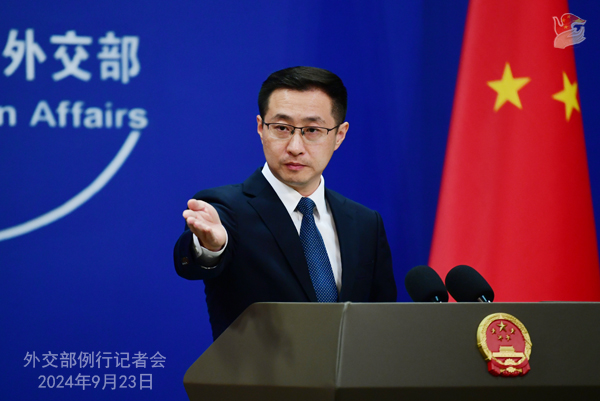EXPLAINED: What is China’s United Front and how does it operate?
Evidence is mounting of clandestine Chinese influence operations in the heart of America. Just in the last few months, a former aide to the governor of New York state and her husband were arrested for alleged illicit activities promoting the interests of China; a Chinese democracy activist was arrested and accused of spying for China; and a historian was convicted of being an agent for Beijing. The three separate cases of former Albany functionary based on expert testimony. United front groups often have innocuous sounding names, like the Council for the Promotion of Peaceful National Reunification or the Chinese People’s Association for Friendship with Foreign Countries. Many appear to be ordinary overseas Chinese community organizations, and are found in business and even in multinational corporations. Lurking behind or within them, though, are government or party agencies – very often China’s powerful intelligence, security and secret police agency. “United front groups are used – very specifically – to hide the Ministry of State Security,” said Peter Mattis, head of the non-profit Jamestown Foundation. “This is why I like to think of the United Front Work Department as the tall grass that is sort of deliberately cultivated to hide snakes,” he told RFA. What is the history of China‘s ’united front’ work? Under the Moscow-led Comintern in the 1920s, the Chinese Communist Party adapted Soviet revolutionary Vladimir Lenin’s concept of forming a “united front” – forging temporary alliances with friends and lesser enemies in order to defeat greater enemies. After Mao Zedong’s Communists took power in 1949, united front work focused internally on co-opting Chinese capitalists and intellectuals, who were brought to heel and persecuted in the 1950s under Mao’s vicious ideological campaigns. Supporters await the arrival of Chinese Premier Li Qiang and Australian Prime Minister Anthony Albanese to Kings Park in Perth, Australia, June 18, 2024. Citizens of Taiwan have for decades been pressured by united front efforts to support unification with the Communist-controlled mainland. The recent imposition of draconian national security legislation in Hong Kong has made citizens and exiles who oppose those authoritarian steps in formerly free Chinese territory targets of united front pressure. These targets are not alone and the list is growing, with Australia, Britain, Canada and New Zealand also grappling with Chinese influence campaigns that smack of united front work. “There’s no clear distinction between domestic and overseas united front work: all bureaus of the UFWD and all areas of united front work involve overseas activities,” the report from Australia’s ASPI said. “This is because the key distinction underlying the United Front is not between domestic and overseas groups, but between the CCP and everyone else,” it said. The Chinese Embassy in Washington told Radio Free Asia that the United Front’s domestic role is to “promote cooperation between the (Communist Party) and people who are not members of it.” Outreach to the diaspora “helps give full play to their role as a bridge linking China with the rest of the world,” the embassy spokesperson’s office said in an e-mailed statement. “Its work is transparent, above-board and beyond reproach,” it said. “By making an issue out of China’s United Front work, some people are trying to discredit China’s political system and disrupt normal exchange and cooperation between China and the United States.” Additional reporting by Jane Tang of RFA Investigative. Edited by Malcolm Foster. We are : Investigative Journalism Reportika Investigative Reports Daily Reports Interviews Surveys Reportika



